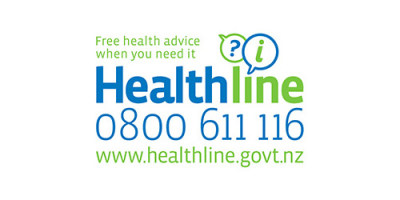Final Board meeting: Thank you and farewell
"As the Board closes this chapter, we want to thank everyone who works at Nelson Marlborough Health – you are amazing. Through good times and bad you have soldiered on; we appreciate it is not always straight forward. The one thing I have always been incredibly grateful for is that everyone in health comes to work every day to make a difference. It does not matter where in the system you work, you work in health to improve the health of people and communities. Thank you for your dedication, energy, and service."
Jenny Black, Chair
Nelson Marlborough District Health Board
Chair's report
As this is the final agenda of the Nelson Marlborough District Health Board, I would like to take a brief, and certainly not complete, look at the achievements of our services, the system and the changes that have occurred. Much has changed, and yet much has stayed the same.
NMDHB completed its first year, after a transitional Board, in 2001. From the 2001
Annual report, where $154.5m was received to provide services, the opening statement
read: “The region served by NMDHB encompasses Nelson City, Tasman District and
Marlborough District. At the 2001 Census the population numbered 122,500. The
Nelson Marlborough region has one of the fastest growing populations in New Zealand and is also a popular holiday destination. The region has a high proportion of older people and low proportion of non-European people when compared with the New Zealand population as a whole.”
We still open our reports with a similar statement, with a different population number.
The Annual Report was a 33-page document and highlights were the building of the
new ED, ICU and Radiology Departments in Nelson. Interestingly, the redevelopment
took 2 years to plan and 3 years to build!! Yes, carparking was an issue then as it is
now.
While the redevelopment continues according to plan, there have been some
associated disruptions. For example, while a carparking plan was put in place, this
issue continues to be a difficult one for patients and staff alike, while construction
continues.
The other major initiative of the year was the start of the resettlement of 71 residents of Braemar to the community. These people joined the residents of Ngawhatu who had transitioned in the late 1990s. Known now as those who are cared for in DSS, the
numbers have altered little, and the recent change in emphasis from a medical care
model to “Enabling Good Lives” has been a positive change.
During the 2001/02 year, a national exercise called Operation Virex was held to test the
preparedness for a national pandemic response. It would be interesting to take a look
at that report to see if it resembles in anyway, what has played out in the last 2 years.
Roll forward to 2010/11; our annual revenue was $375,500. The year was dominated
by the Christchurch earthquakes and the collapse of the Pike River mine. Both of these
events would cast long shadows – CDHB has battled infrastructure and financial issues
and the Health and Safety Bill 2015 has dictated how we work and how we care for staff. Through both of these events NMH has provided strong support to our
neighbouring DHBs.
2010/11 saw the opening of the new Wairau Hospital, the start of the Golden Bay
Community Health Centre, the Medical and Injury Centre and the beginning of the five
new community oral health clinics. Infrastructure is a feature throughout our history.
Not only is it crucial for service delivery, but modern facilities also act as an attraction for staff. However, the best facilities are nothing without the staff who provide the services, and we are grateful to the many staff who have been on the NMH team since 2001.
Following these infrastructure projects, NMH had to spend the next 2-3 years taking a
close look at our financial management, not uncommon after major builds. This work
was difficult and financial disciplines were put in place which have carried us through to today. Ensuring all staff understood why we were doing these things did not always
endear the Board to the staff. Tough conversations had to be had. However, as we
wind up the business, and ready it for handover, we are one of a few DHBs who have
the ability to fund essential projects from our reserves. The disciplines have been
retained, and have kept us in good stead.
There have been many service and business improvements, which have been well
documented at the Audit and Risk Committee(A&R). A decision was made early on that finance was a Board responsibility, which freed A&R to concentrate on risk, clinical
governance, asset management, business continuity and internal audit.
In the last 12 years the work done in these areas has been very valuable to the organisation. Much of this work flies below the radar but is essential, and I want to acknowledge the staff who work in this area – they are not the “seen” coalface health workers, but they keep the wheels well-oiled and the organisation moving. A&R is where we document and learn from our mistakes, we prepare and add resistance to our system, we review our performance, mitigate risk, reflect on whether we have achieved what we set out to do and we have some of our best discussions. Thank you to all who have participated in this forum – management and governance – NMH is better for the work that has been achieved under this banner.
Throughout the 22 years of the DHB system, Annual Reports have noted the efforts of
staff and thanked everyone involved. Familiar names from that 2010/11 annual report
are Dr Nick Baker, Hilary Exton, Dr Elizabeth Wood, Dr Bev Nichols, and Peter Burton.
We are very grateful to these dedicated leaders; the many who preceded them and
those that have followed, who commit themselves to our district.
The leadership live and lead by the values of the organisation. These have not changed since 2010 – Teamwork, Respect, Innovation, and Integrity, and are still very relevant today.
In the 22 years of NMDHB there have been many elected and appointed members who
have given time to represent the people of Te Tauihu. There have been five Chief
Executives, and four Board Chairs. The one constant to these changes has been
Gaylene Corlett. Gaylene started as EA to the first CE, Glenys Baldick in 2002 and
other than 6 months of maternity leave in 2004, Gaylene has been the major support to the Board and the CE. Her knowledge of all things NMDHB is unsurpassed and relied upon by all, past and present. On behalf of all of us, a sincere thank you, Gaylene.
In every annual report of NMDHB, our relationship with Tangata whenua via the IWI
Health Board has been noted. Over the years the relationship between the two Boards
has strengthened due to the honest and sometimes challenging korero that has taken
place at the twice-yearly marae-based hui. I believe that we are on a positive path to
improving health for Māori, in Te Tauihu.
Since 2016, the Board has been more deliberate about this activity and with the kaimahi of Te Piki Oranga and Te Waka Hauora we have seen greater access and participation in healthcare, by Māori, for Māori. The future work of local partnership boards and the Māori Health Authority will enhance this work, and I look forward to the day when the health and wellbeing statistics for all ethnicities in Aotearoa New Zealand are similar.
No final report to the Board would be complete without reference to the last 2 years of
providing healthcare in the midst of a worldwide pandemic. It has been unprecedented
in many ways, not only for NMDHB and the Te Tauihu community, but for all New
Zealand.
The COVID Pandemic arrived quickly, we locked down quickly and managed to stay
ahead until we were well vaccinated. But the work required by all those in health –
hospital, primary, community and aged care - has been immense. The ability of all
healthcare staff in our community to join together and build the response; firstly in
testing, contact tracing and then vaccination, has been remarkable. Here in Te Tauihu,
we had relationships that we could call on that were based on dealing with past events– fire, earthquakes, and storms. Our response was sharp, coordinated and when it was not, we knew who we could call on.
Two years on, we are now seeing the ramifications of this group of viruses. Closed
borders meant reduced numbers of applicants for health jobs, the staff like the rest of
our community have caught COVID or have had to stay home to care for whānau and
the stress on those who are available to work is something we have not seen in health
before. Our ability to provide a service is dictated by our workforce. How these issues
of staff illness, vacancies and how we provide care will need to be addressed by the
new system, early in its tenure.
There is a new system coming – much of it will look the same, but there does need to
be change. To get rid of variability in outcomes and improve inequities for Māori are
issues that must be addressed. Not doing many things twenty different ways will help
with this. However, there are some things that I believe we must hold onto.
One system where primary and community care is well aligned and connected to hospital care and each knows their individual role in keeping the other functioning optimally, is a system worth keeping. I believe at NMH we understand this concept, and we respect the place of each team member to make this function smoothly. The new system must acknowledge and understand the importance of this.
As the Board closes this chapter, we want to thank everyone who works at NMH – you
are amazing. Through good times and bad you have soldiered on; we appreciate it is
not always straight forward. The one thing I have always been incredibly grateful for is
that everyone in health comes to work every day to make a difference. It does not
matter where in the system you work, you work in health to improve the health of people and communities. Thank you for your dedication, energy, and service.
A special thank you to Lexie and the ELT for your leadership, and the respect and
support that you have shown to us. We know you will continue to lead by our values –
work as a team, be innovative, respect those around you and work with integrity.
To the Board – thank you for your service, your commitment to the organisation in your governor’s role. We leave the organisation in good hands, performing well in a difficult environment and ready to respond to the changes asked of it by the new system.
It has been my privilege to serve with you for the people of Te Tauihu.
Thank you
Jenny Black
Chair





